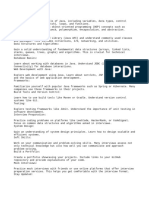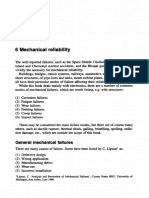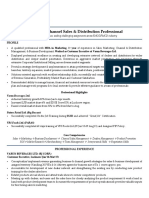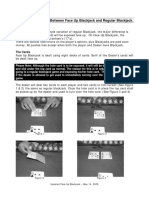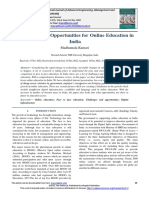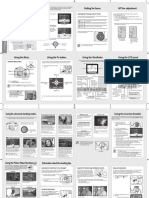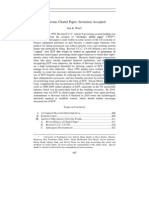0% found this document useful (0 votes)
24 views3 pagesGo To Roadmap For Java Interview 1741629365
The document outlines a comprehensive roadmap for preparing for Java interviews, emphasizing the importance of practical application of concepts over theoretical knowledge. Key areas of focus include Core Java, OOP principles, Collections Framework, Exception Handling, Multithreading, and various frameworks and design patterns. The author stresses the significance of real-world examples and system design knowledge in interviews, along with the integration of soft skills and modern technologies.
Uploaded by
likithaCopyright
© © All Rights Reserved
We take content rights seriously. If you suspect this is your content, claim it here.
Available Formats
Download as PDF, TXT or read online on Scribd
0% found this document useful (0 votes)
24 views3 pagesGo To Roadmap For Java Interview 1741629365
The document outlines a comprehensive roadmap for preparing for Java interviews, emphasizing the importance of practical application of concepts over theoretical knowledge. Key areas of focus include Core Java, OOP principles, Collections Framework, Exception Handling, Multithreading, and various frameworks and design patterns. The author stresses the significance of real-world examples and system design knowledge in interviews, along with the integration of soft skills and modern technologies.
Uploaded by
likithaCopyright
© © All Rights Reserved
We take content rights seriously. If you suspect this is your content, claim it here.
Available Formats
Download as PDF, TXT or read online on Scribd
/ 3



